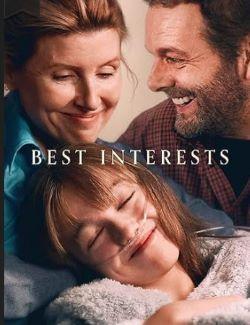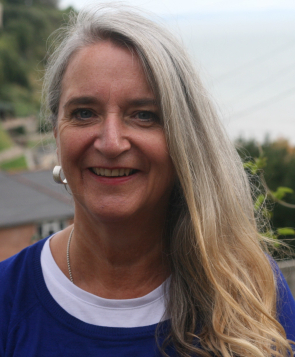A remarkable child: Media reporting and judgments in cases concerning the medical treatment of children

Best Interests currently available on BBC iPlayer Best Interests - BBC iPlayer is a four-part drama about a parent’s fight to prevent the withdrawal of treatment from her daughter, who is comatose by the consequences of a rare form of muscular dystrophy – or, as the mother puts it, “Letting her die”. Although fictional, viewing it calls to mind tragic cases such those of Charlie Gard or Indi Gregory that concern the continuance or withdrawal of life saving treatment. In these cases, the medical staff and parents cannot agree on a particular course of action and need the court to decide. Heard at first instance in the Family Division of the High Court, such decisions are made on what is in the best interests of the child.
But what does best interests mean and how are decisions such as these reached? Published judgments are but one source. Yet, the number of published judgments have over the years gradually reduced. It is much more likely that the general public come to consider the issues through press reporting where permitted. In recent years there has been an increased appetite more generally within the family justice system to foster openness and increase the press reporting of cases concerning disputes heard in the family court. Such initiatives are designed to promote open justice and confidence in the judges and the decisions that they make. However, such confidence depends upon the quality and accuracy of reporting which has been the subject of criticism. Family Courts scrutinised by the press – but what do we think of the reporting so far? | The Transparency Project
Recently, one such best interest decision received press attention. Boy, 4, makes miraculous improvement after life support is turned off...after High Court ruled he 'should not be forced to live' | Daily Mail Online
This arises from the published judgment in September of this year. NR (A Child: Ceilings of Treatment after Survival of Withdrawal of Life Sustaining Treatment), Re [2024] EWHC 2400 (Fam) (18 September 2024) (bailii.org)
Here Mr Justice Poole considered his earlier decision made in April to authorise the withdrawal of life sustaining invasive ventilation for a child in the expectation, that was shared by all medical experts that he would die in hours or days afterwards. Four months later, he was not only breathing independently but thriving and was noted to have “confounded all medical expectations”[1]
The application brought by the parents in September, the subject of the judgment concerned the removal of the “ceiling of treatments” order made on 17th January 2024, whereby the court ordered that medical staff could withhold certain treatments including the administration of cardiopulmonary resuscitation in the event of NR’s cardiac arrest as it was not in his best interests to do so.
In the now changed landscape of NR’s improvement, the parents argued successfully that these ceilings were no longer appropriate and were discharged by the Judge.
The judgment is written humanely and reflectively. It also demonstrates the precariousness of decisions made on the less than certain medical statistics before it, noting that “Medicine is a science of uncertainty and an art of probability”[2]
Following the decision to withdraw support the young boy’s outcome did not align with the probability of his death. NR is described as remarkable. The judgment provides a reminder of the four fundamental principles used in these cases[3]
i) The child's best interests are the court's paramount consideration and must be viewed from the assumed point of view of the child patient.
ii) The term "best interests" is used in its widest sense and is not limited to medical considerations.
iii) There is a strong presumption in favour of taking all steps to preserve life but it may be displaced if other considerations outweigh it.
iv) The views of parents, clinicians, and others caring for the child should be taken into account, but no one person's views, including those of a parent, are decisive.
There is therefore a careful balancing act in the weighting of these factors. This is far more nuanced than the headline press reporting and provides a truer understanding of the difficulties in making the particular decision that the court is asked to decide upon.
“A decision to withdraw life sustaining treatment is not a decision to bring about the death of a patient, but a decision that the continuation of the treatment is not in their best interests. NR's survival and progress have shown that the withdrawal of invasive ventilation was indeed in his best interests. At the time, based on the prognoses provided to the Court, I decided that ventilation should cease despite, not because of, the strong expectation that NR would die soon afterwards. I do not wish to minimise the emotional turmoil suffered by Mr and Mrs R and the continuing burdens that NR suffers because of his conditions, but it seems to me to be a wonderful surprise that NR has confounded expectations, that he no longer requires continuing invasive interventions and, in particular, that he has been able to return home to the loving care of his devoted parents.”[4]
Although the Daily Mail reporting of the case is factually accurate, including the headline of the judge’s description of NR as remarkable, the article widens out the commentary and images of other children who did not survive following judicial decisions to withdraw treatment, for example Indi Gregory and the failure by parents to convince the European Court of Human Rights that she should continue to be treated. This approach must be very painful for the families involved, whose children were no less remarkable.
Arguably incomplete reporting does not accord due respect to the children and parents at the centre of such cases. It reduces the important detail of what it was the Judge specifically was being asked to do and promotes generalisations around best interest cases that do not serve the children, parents or decision maker at the centre of these cases. Best interests decisions do incorporate medical opinion and probabilities but are made upon the individual complex circumstances of each child at a particular moment in time. This is worthy of responsible and respectful reporting. Where it is not possible to explain legal tests such as best interests accurately in a press report then it should be left to the judgment itself to do so.
[1] NR (A Child: Ceilings of Treatment after Survival of Withdrawal of Life Sustaining Treatment), Re [2024] EWHC 2400 (Fam), para 2, quoting Sir William Osler, 1849-1919
[2] NR (A Child: Ceilings of Treatment after Survival of Withdrawal of Life Sustaining Treatment), Re [2024] EWHC 2400 (Fam), para 2
[3] NR (A Child: Ceilings of Treatment after Survival of Withdrawal of Life Sustaining Treatment), Re [2024] EWHC 2400 (Fam), para 8
[4] NR (A Child: Ceilings of Treatment after Survival of Withdrawal of Life Sustaining Treatment), Re [2024] EWHC 2400 (Fam), para 16

Allison Wolfreys
Allison Wolfreys is a Law Lecturer. Formerly a Solicitor in practice, her interest lies in family law and specifically children’s rights. She holds a degree in Literature and Social Science from Manchester University.
She has published in leading family law journals such as Child and Family Law Quarterly. With a particular interest in cases concerning parental child abduction, her work was cited in a recent European Parliamentary publication. She also published the first empirical study that focuses upon the participation of children in Hague parental child abduction proceedings heard in England and Wales through data collected from legal practitioners and Cafcass staff. Allison has continued her role as author and Module Team Chair of W230 Family Law from production to presentation.
Best Interests image - Copyright British Broadcasting Corporation (BBC), Chapter One Pictures and One Shoe Films.Best Interests (2023)